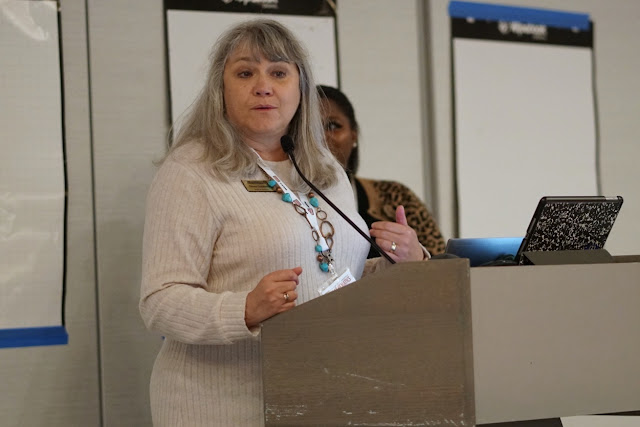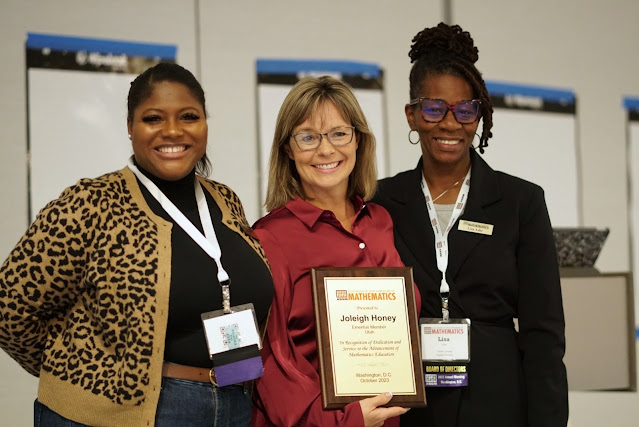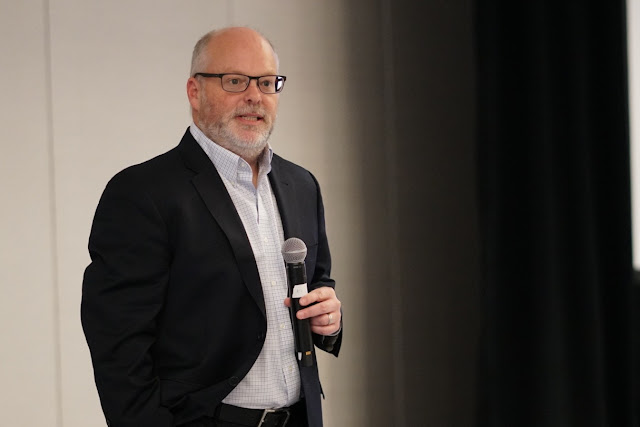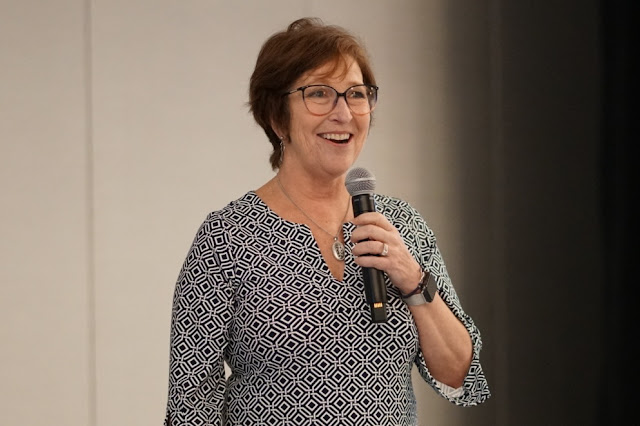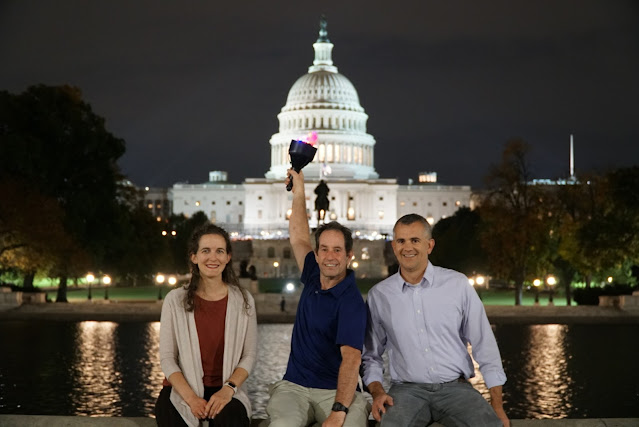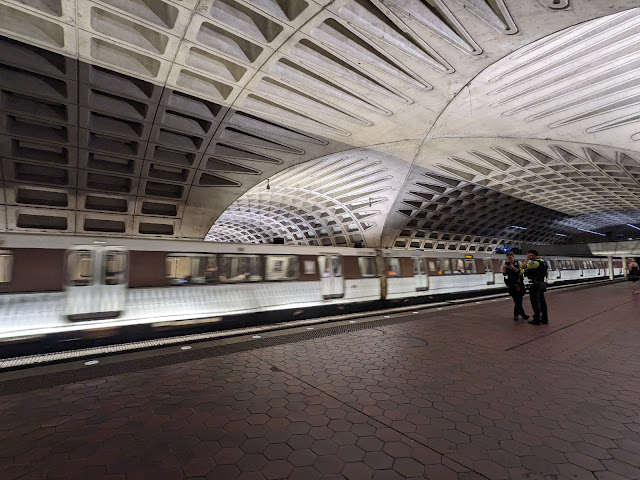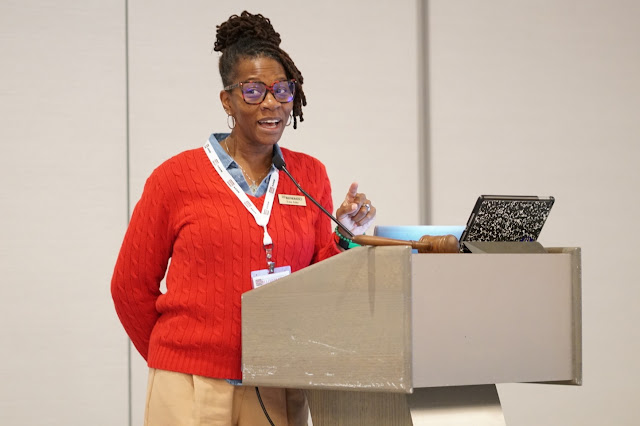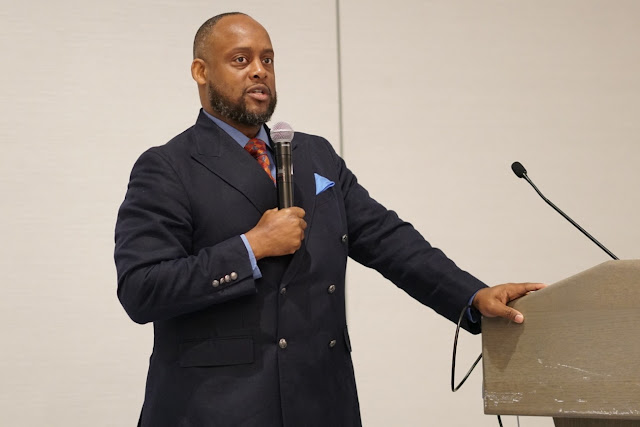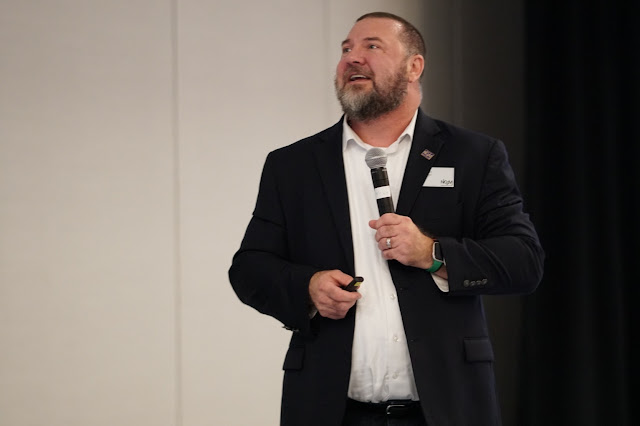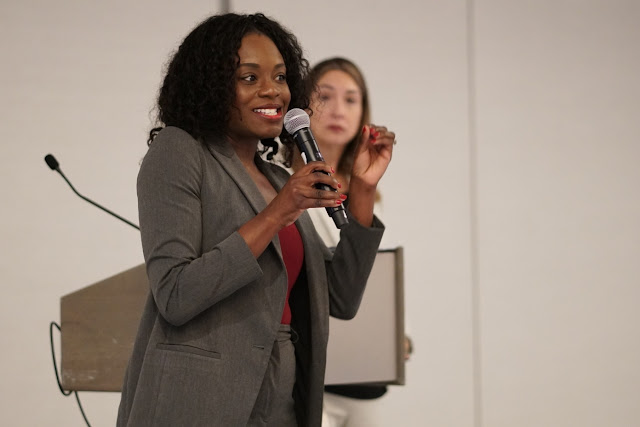 |
| Teachers leading PD in the San Luis Valley |
Where did the year go? In order to get at least one post up on this blog before the calendar flips to 2025, let me recap some big events of the last year.
January 2024: Math Routines in the San Luis Valley
The first highlight of the past year happened in Alamosa in January, and it was the result of many months of work. In Summer of 2023, my CDE colleagues and I recruited a dozen teachers from Colorado's San Luis Valley to attend conferences in Denver for four days and then turn what they learned into local professional development for districts in the San Luis Valley in January. I'm skipping over a lot of details, but it was great to work with these teachers and support them in their sessions.
February 2024: Launch Years Convening in Anaheim
It was a great year working with Colorado's Math Pathways Task Force and receiving support through the Launch Years Initiative. A contingent from Colorado joined up with more than 20 other states in a very rainy Anaheim, California to share progress and strategies about how to improve high school math and transitions for students as they matriculate to college and other postsecondary opportunities.
 |
| It rains in California, sometimes |
July 2024: Math Intervention Design Workshop
In July, CDE teamed up with CCTM to host a design workshop in Summit County for a week. As I told the attendees, it probably felt like (a) work that felt like a vacation, or (b) a vacation that required a lot of work. Either way, Summit County in the summer is a delightful place to be. About 20 educators of all kinds -- higher ed, K-12, veterans, novices -- worked to develop materials that should be useful with students who are still struggling after regular instruction. We were all really pleased with the effort that went into these materials and we're looking forward to getting them into people's hands and getting feedback about how well they work.
 |
| The design workshop participants got to test their creations with summer school kids in Leadville, who graciously hosted us for a morning |
September 2024: ASSM, NCSM, and NCTM in Chicago
This year's ASSM, NCSM, and NCTM conferences were in Chicago. To take in all three conferences requires a 9-day stay and by the time it's over, my head is swimming with all sorts of ideas and things I want to do and learn more about. ASSM held their conference in a hotel on Navy Pier, which was a treat.
In recent years, I've tried to blog at the end of each day of my conference trips. That didn't happen this year -- I was more social in the evenings than usual, with takes time, and I had two presentations at NCTM to finish preparing for. I kept thinking I'd get around to writing some recaps, but maybe I'll settle for a few bullet points here:
- A decade ago, I joked with many people that if you wanted people to show up at your session, all you needed to do was name it something like, "Common Core iPad Games for the Flipped Classroom." I don't know what would get the equivalent amount of attention today, but surely it has "AI" in the title. I've seen a few AI presentations so far and I'm still waiting for one that (a) focuses on the use of AI in math education specifically and (b) is practical without too much hype / too little skepticism.
- There's a national momentum for reforming high school math. I don't know exactly what the results of that momentum will bring, but I hope it's great. What we currently have isn't serving enough of our students as well as it should.
- I used to read stories about how many baby boomer teachers would be retiring. I think we're on the other side of that now, and it feels like we have a lot of younger and more novice teachers who can really benefit from the support they get at conferences and in their other professional learning. I know what teachers can get out of a 60- or 90-minute conference session is limited, but the overall exposure to new ideas and the enthusiasm behind them is something I hope every teacher has a chance to experience.
 |
| Navy Pier, Chicago, is a great place to enjoy a conference |
October 2024: Fall Math Pathways Summit
To put an explanation point on Colorado's math pathways work, the task force hosted a summit in Colorado Springs. About 100 people attended from all over, and there's a lot of excitement about the work.
 |
| Thanks to Pikes Peak State College for providing a great space for the Fall Math Pathways Summit |
